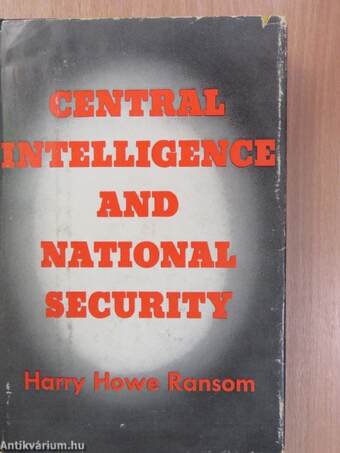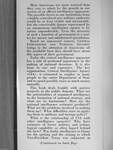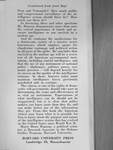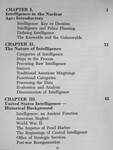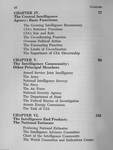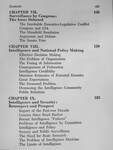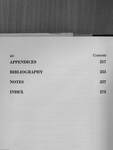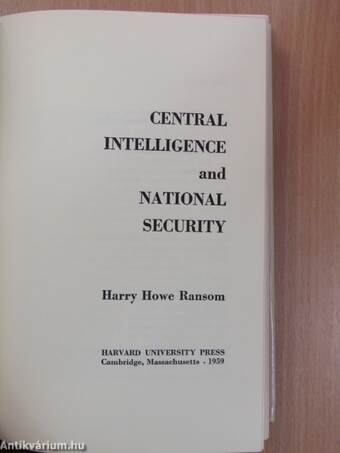1.067.335
kiadvánnyal nyújtjuk Magyarország legnagyobb antikvár könyv-kínálatát

VISSZA
A TETEJÉRE
JAVASLATOKÉszre-
vételek
Central Intelligence and National Security
| Kiadó: | Harvard University Press |
|---|---|
| Kiadás helye: | Cambridge |
| Kiadás éve: | |
| Kötés típusa: | Vászon |
| Oldalszám: | 287 oldal |
| Sorozatcím: | |
| Kötetszám: | |
| Nyelv: | Angol |
| Méret: | 22 cm x 14 cm |
| ISBN: | |
naponta értesítjük a beérkező friss
kiadványokról
naponta értesítjük a beérkező friss
kiadványokról
Fülszöveg
Most Americans are more worried than they care to admit by the growth in our society of an official intelligence apparatus. The possible threat to our institutions from a highly centralized new military authority would he at least visible and measurable, but the conceivable danger represented by an autonomous intelligence agency is by nature imponderable. Even the necessity of such a function of government is a matter for uneasy and uninformed speculation. Based on non-secret sources, Central Intelligence and National Security brings to the attention of Americans all the available facts they should have about this aspect of their government. Today the central intelligence apparatus has a role of profound importance in the making of national decisions. It is also large in size and expensive. The key organization, Central Intelligence Agency (CIA), is estimated to employ as many people as the entire Department of State and to spend possibly twice as much money annually. This book... TovábbFülszöveg
Most Americans are more worried than they care to admit by the growth in our society of an official intelligence apparatus. The possible threat to our institutions from a highly centralized new military authority would he at least visible and measurable, but the conceivable danger represented by an autonomous intelligence agency is by nature imponderable. Even the necessity of such a function of government is a matter for uneasy and uninformed speculation. Based on non-secret sources, Central Intelligence and National Security brings to the attention of Americans all the available facts they should have about this aspect of their government. Today the central intelligence apparatus has a role of profound importance in the making of national decisions. It is also large in size and expensive. The key organization, Central Intelligence Agency (CIA), is estimated to employ as many people as the entire Department of State and to spend possibly twice as much money annually. This book deals frankly with matters properly in the public domain. What are the potentialities of organized intelligence in the formation of national strategy, and what are its limitations? How are the national intelligence estimates produced? What are the problems involved in making them up? What difficulties arise in applying them to military and foreign policy? What is the relationship of CIA with other intelligence agencies? Why have estimates of Soviet military and technological capability so often lagged behind the facts? Was faulty intelligence to blame for the spitting and the stoning to which Vice-President Nixon was subjected in (Continued on back flap){Continued from front flap) Peru and Venezuela? How much public and congressional surveillance of the intelligence system should there be? How much can there be? In discussing these and other questions Mr, Ransom demonstrates more than once the crucial importance of timely and accurate intelligence to our survival in a nuclear age. And he confronts the implications for a democratic society of a massive secret bureaucracy which employs agents for clandestine espionage and political action in all parts of the globe. He concludes that survival in the nuclear age will be a severe test of all American governmental institutions, including central intelligence, and that the use of any instrument of national policy - diplomacy, military power, economic pressure - will depend heavily for its success on the quality of the intelligence estimate. In short, America today must maintain intelligence forces previously marshaled only in wartime. The citizen, as one of his rights of democratic self-government, should take part in determining the scope and effectiveness of so vital an instrument. Expectations of what intelligence can do should not be exaggerated, but it is clear that policy makers can know more than they do, and can make better use of the information they get. From this book the American citizen may learn what it is possible for him to know about the purpose and nature of the intelligence system that has evolved in the United States since World War II. Harry Howe Ransom, a political scientist, is Research Associate in the Defense Studies Program, Harvard University. HARVARD UNIVERSITY PRESS Cambridge 38, Massachusetts Vissza
Témakörök
- Idegennyelv > Idegennyelvű könyvek > Angol > Történelem > USA története
- Történelem > Idegennyelvű > Angol
- Történelem > Politika > Külpolitika > Egyéb
- Történelem > Kontinensek szerint > Amerika, amerikai országok története > Észak-Amerika
- Történelem > Legújabb kor > A hidegháború kora (1946-1991)
- Történelem > Politika > Pártok, szervezetek
- Történelem > Hadtörténet > Hadügy, hadviselés
- Történelem > Tanulmányok
Harry Howe Ransom
Harry Howe Ransom műveinek az Antikvarium.hu-n kapható vagy előjegyezhető listáját itt tekintheti meg: Harry Howe Ransom könyvek, művekMegvásárolható példányok
Nincs megvásárolható példány
A könyv összes megrendelhető példánya elfogyott. Ha kívánja, előjegyezheti a könyvet, és amint a könyv egy újabb példánya elérhető lesz, értesítjük.



